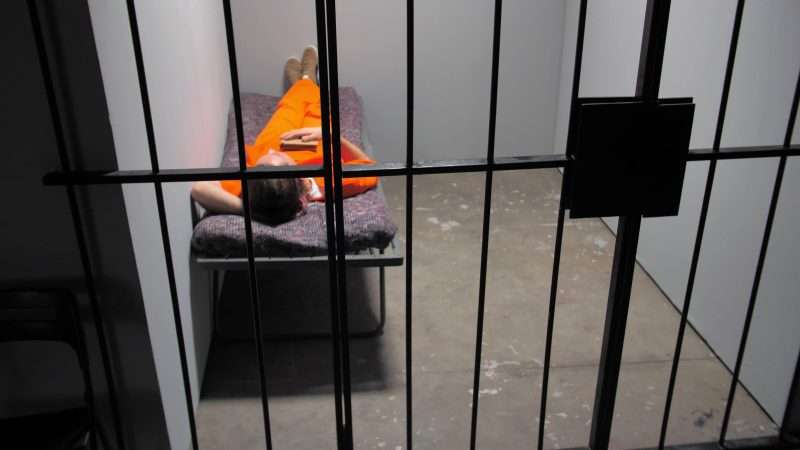
Is it cruel and unusual to subject an incarcerated person to sleep deprivation for years? That's a question it has taken federal courts more than a decade to answer.
On March 22, the U.S. Court of Appeals for the 5th Circuit reinstated Texas inmate Michael Garrett's 11-year-long-and-still-running lawsuit against the Texas Department of Criminal Justice, finding that a lower district court had repeatedly and incorrectly subjected him to a higher bar than it should have to prove that being afforded less than four hours of sleep a night violated his constitutional rights.
Garrett's case is an extreme example of how long it takes and how difficult it is to prevail on an Eighth Amendment lawsuit, even on what should be a straightforward question.
Garrett first filed a lawsuit against the department in 2013 alleging that he and his fellow inmates inside his unit were given fewer than four hours of sleep a night—and only two and half hours of continuous sleep at most. Bedtime is at 10:30 p.m., followed by a 1 a.m. headcount, and then breakfast begins around 2 a.m.
Garrett argued the continual sleep deprivation posed a serious health risk and sought an injunction that would mandate a prison schedule with six hours per night designated for sleep.
A year later, a federal magistrate judge dismissed Garrett's complaint for failure to state a claim, finding that he "has no constitutional right to a pre-determined number of hours of uninterrupted sleep each night," and that to prevail, he "would have to establish that he has suffered a physical injury caused by the alleged sleep deprivation."
However, the 5th Circuit reversed that decision, finding that sleep deprivation "could plausibly constitute a denial of the minimal civilized measure of life's necessities."
At a 2018 bench trial back in district court, a federal judge ruled against Garrett again, finding that he hadn't directly connected his health problems—migraines, seizures, vertigo, and hypertension, among others—to the sleep deprivation inflicted on him by the prison.
This was despite expert testimony from Candice Alfano, director of the University of Houston's Sleep and Anxiety Center.
"Potent cause-and-effect relationships between inadequate sleep and medical problems have been demonstrated for decades in scientific studies," Alfano said in a statement to Reason. "In fact, there is no debate among sleep experts regarding the wide-ranging, harmful effects of inadequate sleep on physical and mental health. So, the notion that 'burden of proof' falls solely on the individual in legal proceedings is neither reasonable nor just."
In 2019, Garrett was transferred to a new prison unit where sleeping times were actually slightly worse. The 5th Circuit remanded Garrett's case back to the district court again to review the new conditions, but the district court ruled that "[n]othing in the evidence suggests that TDCJ is engaged in conduct designed to intentionally inflict sleep deprivation on inmates."
Garrett appealed, and last month the 5th Circuit ruled that the lower district court had improperly required Garrett to show evidence of actual harm incurred by sleep deprivation, when the legal standard only required him to prove a substantial risk of harm.
Now Garrett's case returns to district court yet again.
This all should not have been a particularly hard question for a federal court to answer, given the fact that sleep deprivation is a time-honored tactic to break interrogation subjects. For example, a 2014 United Nations report condemned the U.S. for allowing interrogators to keep military detainees awake for 20 hours a day—more time than Garrett and other inmates at the Texas unit are afforded. (The report did not go so far as to call this torture, but instead a "form of ill-treatment.")
The Constitution guarantees incarcerated people the right to basic hygiene and living conditions necessary to maintain their human dignity, but in practice the length of time that it takes to litigate a federal civil rights lawsuit and the high bar to prevail on an Eighth Amendment claim means that incarcerated people can be subjected to gruesome medical neglect, extreme heat and cold, and atrocious living conditions for years without remedy.
How many more years will Texas inmates be subjected to brutal sleep schedules before federal courts can work out if it's constitutional or not?
The post Federal Appeals Court Says Texas Inmate's Decade-Long Lawsuit Over Sleep Deprivation Can Keep Going appeared first on Reason.com.







